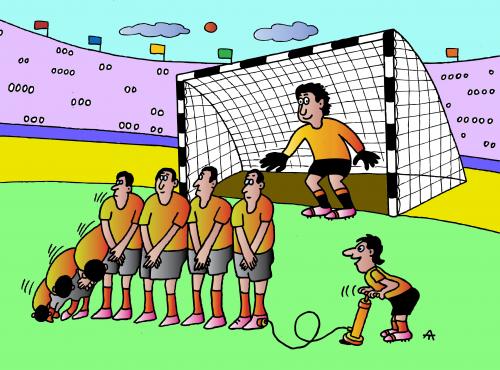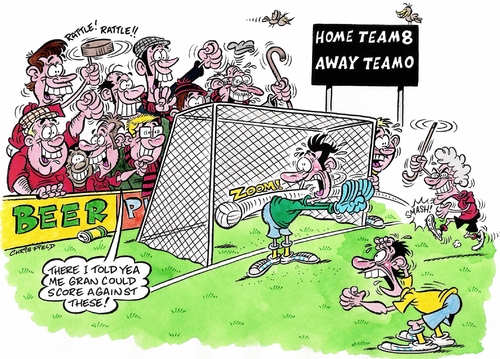Football Cartoon Pictures Definition
Source(google.com.pk)Tom Brady was born on August 3, 1977 in San Mateo, California. He grew up around football, as his parents were huge San Francisco 49ers fans and regularly took him and his sisters to games. Tom began playing organized football in grade nine at the all-boys Catholic school he went to, where he also played baseball. Brady was drafted by the Montreal Expos as a catcher in 1995 but decided to accept a scholarship to the University of Michigan in 1996 to play college football instead.
Tom Brady spent more time standing on the sidelines than on the football field during his first two seasons at Michigan, where he was the team's third-string quarterback. Tom worked hard on his game, memorized the team's playbook, and became Michigan's starting quarterback in 1999. In his senior year playing college football, Tom Brady tossed 20 touchdown passes and led Michigan to a victory over Auburn in the Orange Bowl.
After being drafted by the New England Patriots in 2000, Tom Brady spent his first year holding a clipboard and watching from the sidelines. But in 2001, he got his big break. When the Patriot's starting quarterback, Drew Bledsoe, was injured, Brady became the team's starter and took the team all the way to Super Bowl XXXVI. He led the Pats to a victory over the St. Louis Rams and became the youngest player ever to be named Super Bowl MVP. Between October 2003 and October 2004, Tom Brady led the Pats to an NFL-record 21 straight wins, including a second Super Bowl title. With their 24 - 21 victory over the Philadelphia Eagles in Super Bowl XXXIX, Tom Brady and the Patriots can now lay claim to being one of the greatest teams in NFL history.A Star Trek-watching, show tune-singing, entertainment-obsessed fanboy, MacFarlane began drawing cartoons at 2 years old and was publishing his own comic strip in his hometown newspaper by the age of 8. Sure of what he wanted to do for a living, the New England-born animator landed a job with Hanna-Barbera straight out of art school, drawing storyboards and writing scripts for such series as Dexter's Laboratory and Johnny Bravo. FOX soon approached him about creating his own show, and in 1999 the cult favorite Family Guy was born. With offbeat characters (many of whom were voiced by MacFarlane, who won a 2000 Emmy for his voice work), wall-to-wall pop-culture references and outrageous, politically incorrect humor that sparked all kinds of complaints, the cartoon sitcom had a rocky road and was canceled in 2002. But its surprisingly robust DVD sales prompted the network to give it another go in 2005, and MacFarlane continued his domination of FOX's Sunday-night animation block with American Dad that same year and The Cleveland Show in 2009. Off screen, MacFarlane is a talented pianist.There is a peculiar moment in the middle of “Paterno,” Joe Posnanski’s new biography of the disgraced coach. It comes in a chapter called “Sainthood,” during a recounting of the 1973 football season, in which Penn State went undefeated. The quarterback Tom Shuman, Posnanski recounts, “hit the books, made the Dean’s List, played pro football for a while, and became a national sales manager.” Shuman is just one example in a list that follows. “Fullback Bob Nagle became a systems engineer. Flanker Chuck Herd became a conference planner at Penn State and worked as a personal ministry Bible school teacher. Split end Gary Hayman became an attorney. Tight end Dan Natale owned a sporting goods store. Left tackle Phil LaPorta went into construction.”
Surely teams that lost all of their games, too, can point to similarly varied demographics. These are college graduates, after all. What gives? (In this week of the Republican convention, one is tempted to invoke “the soft bigotry of low expectations.”) The theme of the chapter is that Paterno, by 1973, had stumbled into his true calling: “improving the lives of young men,” instead of merely winning football games for money. That was the year he turned down a lucrative offer to coach the New England Patriots, remaining instead in a town that likes to think itself more distinctively sleepy than it is. “How could he honestly call himself anything more than a football coach if he was making a million dollars to coach professionals?” Posnanski writes.
Sainthood is of course a challenge and a burden for any living person, and the sad question—or a sad question—is why Paterno felt the need to call himself anything more than a football coach. (The N.C.A.A., remember, was not yet a disgraced entity itself.) He suffered, you might say, from being a football coach whose father was a lawyer and had wanted his son to become President. In that respect, he was unusual, at least. A former English major and Ivy Leaguer, Paterno continued paying lip service to Shakespeare and to “The Aeneid,” but only superficially, to judge from “Paterno,” which includes a nice detail about the ex-coach contemplating writing poetry in his dying days—strictly of the rhyming sort, he hastens to add.
What is most remarkable about the Paterno who emerges in “Paterno” is how unremarkable he was in many ways—how typical in his single-mindedness. He loved “Patton.” He had few close friends. (“It was not in his nature to open up.”) He played head games with his freshmen and sophomores, and oversaw physically brutal practice sessions that inspired comparisons with the Marines. He stressed the importance of teamwork over individual stardom, and actually spoke lines like “take care of the little things, and the big things will take care of themselves.” The coach in Happy Valley may have “looked like a professor,” as Posnanski writes, but he turns out to have sounded just like the heavyset guy patrolling the sidelines at your nearest high school.
That isn’t necessarily a criticism, although one senses, in the Paterno camp’s defensive response to the Jerry Sandusky scandal, a fear that it must be. Having felt for years that the great man’s reputation was under stealth assault from those never inclined to see any pedagogical virtue behind the tough love and bluster of football culture, they pointed to the library that bore his name, as though proof of his essential goodness were exculpatory.
I spent several months, last fall, shadowing a high-school-football team in New Jersey that is often jokingly compared to a college program—and not just by its detractors. The head coach was a local legend in the Bear Bryant mold. Like Paterno, he hadn’t yet bothered to learn to use e-mail. Unlike Paterno, he’d never had any doubt about whether he should have gone to law school instead. His values weren’t for everyone—not everyone in this century, certainly—but he had an admirably sturdy sense of self and the loyalty of countless families whose boys were destined to become sales managers and construction workers and attorneys. I wouldn’t hesitate to call him a good man, in spite of the fact that he had a worrisome ability to ignore much of what was going on around him—to take care of certain little things at the expense of others.
I also happened to be in a car with this quasi-college coach on the morning after the grand-jury presentment against Sandusky was made public. (O.K., it was a Porsche, driven by the team’s booster-club president, who was delivering the coach to issue bromides to a group of awestruck car salesmen.) I mentioned the possibility of Paterno’s losing his job over the scandal. He was incredulous. “He reported what he heard to the A.D.!” the coach said, from the front seat, and dismissed my notion that the story was bound to snowball.
Around the same time of that car ride, we now know from Posnanski, Scott Paterno tried to get his father to read the presentment, and the once sainted JoePa resisted, failing to see the big picture. “Dad, this is really important,” Scott said. “I’ve got Nebraska to think about,” Joe replied. “I can’t worry about this.” That doesn’t strike me as the reaction of someone who knowingly orchestrated a coverup, as some have interpreted the Freeh Report to imply. But how, in the end, could he honestly call himself anything more than a football coach?
A new football season is just beginning, amid an ever-louder drumbeat of concerns about head injuries, and whether a sport that can’t help but inflict them can fairly be said to improve the lives of young men. (What good is a Bible-school teacher who has trouble remembering the names of his students?) It’s not a simple question, but there are little things that can be taken care of in the short term, like enforcing safer tackling techniques and establishing a culture that prizes honesty (including about one’s fogged mind) as much as bravery. So here’s to giving coaches their due, while also recognizing that the big things don’t always take care of themselves. For that we need oversight, and let’s be glad, however cautiously, that Roger Goodell now seems more attentive than Graham Spanier .
Football Cartoon Pictures Free JCartoon Pictures Images Photos Wallpaper 2013

Football Cartoon Pictures Free JCartoon Pictures Images Photos Wallpaper 2013

Football Cartoon Pictures Free JCartoon Pictures Images Photos Wallpaper 2013

Football Cartoon Pictures FreeJCartoon Pictures Images Photos Walpaper 2013

Football Cartoon Pictures Free JCartoon Pictures Images Photos Wallpaper 2013

Football Cartoon Pictures Free JCartoon Pictures Images Photos Wallpaper 2013

Football Cartoon Pictures Free JCartoon Pictures Images Photos Wallpaper 2013

Football Cartoon Pictures Free JCartoon Pictures Images Photos Wallpaper 2013

Football Cartoon Pictures Free JCartoon Pictures Images Photos Wallpaper 2013

Football Cartoon Pictures Free JCartoon Pictures Images Photos Wallpaper 2013

No comments:
Post a Comment